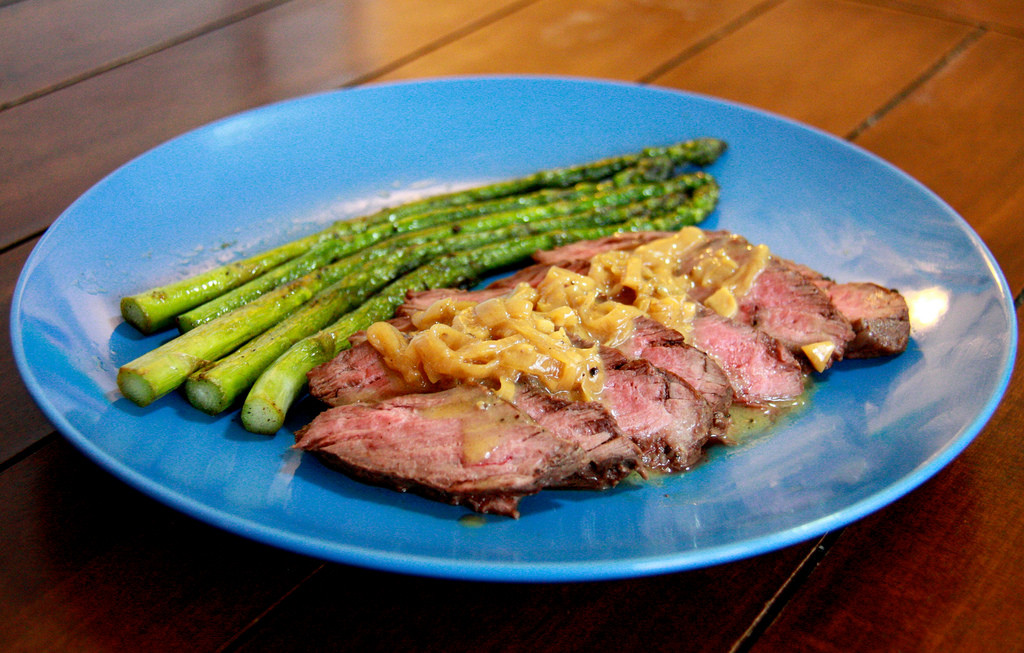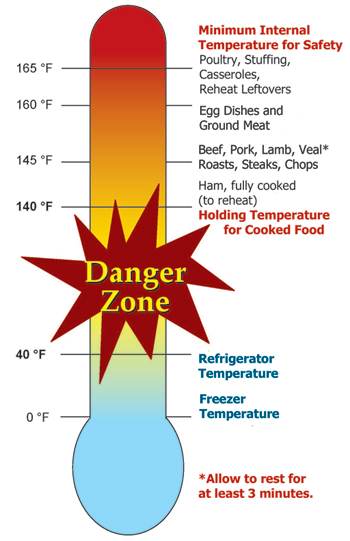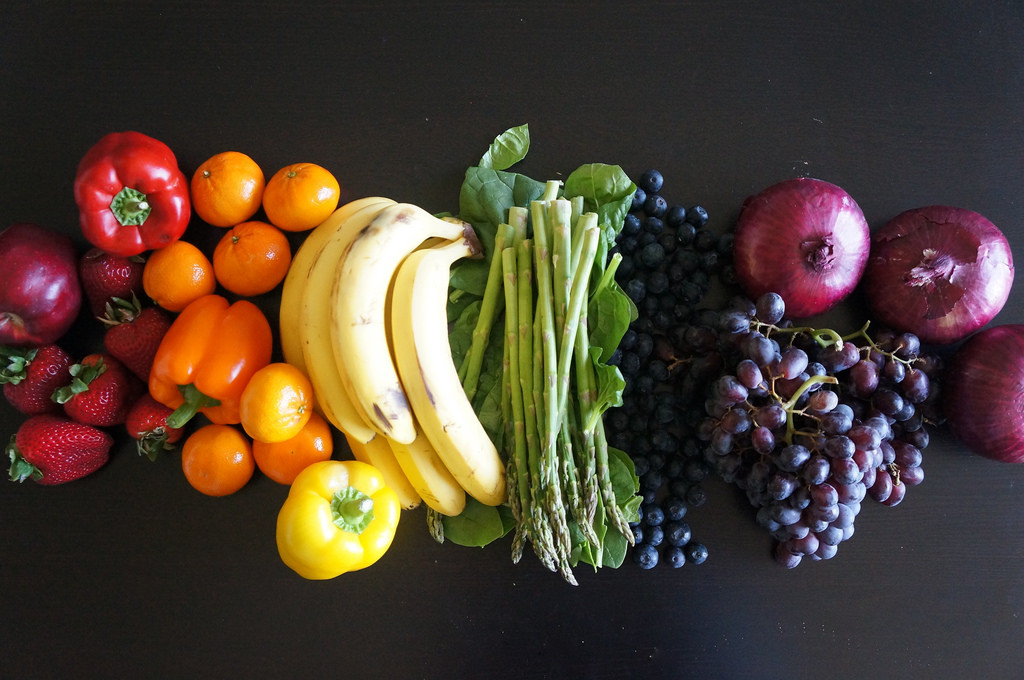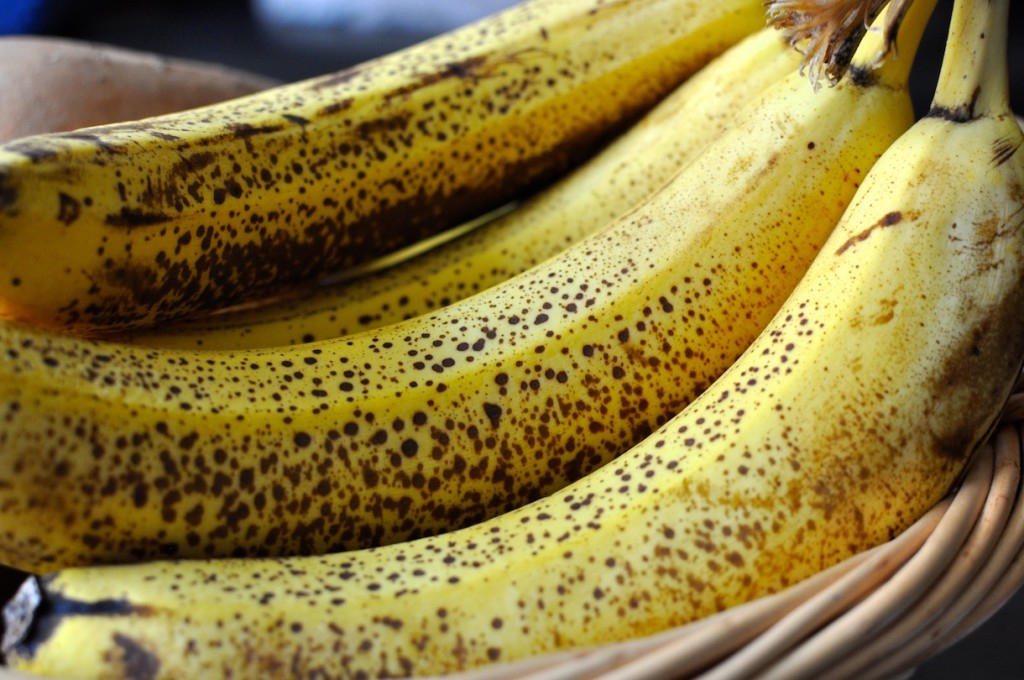When Does Paneras Turkey Soup Start Being Served Again
This is How Long Every Kind of Food Can Sit down Out Before It Goes Bad
Forgot to put away that craven? Can you lot refrigerate potatoes? Get all your questions answered here.
Past adding your email you agree to go updates well-nigh Spoon University Healthier
We've all left nutrient sitting out on the counter, but little exercise nosotros know how harmful it can really exist. Final semester in my nutrient science form, we learned well-nigh nutrient safety and since then, I have become style more paranoid near leaving my food out. However, there are some fruits and vegetables that can sit out for further ripening. Find out the truth below.
Cooked Foods, Meats and Fish

Photo by Kathleen Lee
Whatever cooked foods or cutting fruit cannot stay out longer than ii hours. This is two hours total. This ways that for every minute you take food out to rearrange your fridge, contemplate eating it or forget to put it away, it counts towards the 2 hour window of leaving nutrient out.
Well, what's really the impairment of leaving it out for longer?
When food sits at room temperature, it's in the "Danger Zone" of twoscore-140°F. This temperature is bacteria's platonic environment to abound and multiply. If information technology'south a hot solar day, then food should only be left out for an hour. When y'all freeze your nutrient at a temperature of 0°F, the bacteria becomes inactive. At a proper fridge temperature of twoscore°F, bacteria does not grow or grows very slowly. Therefore, products will somewhen go bad, but tin can stay fresher for longer.

Photograph courtesy of USDA
Fruits and Vegetables

Photo by Sean Koetting
Fruits and vegetables vary on how long they can last and where they should be stored. Here'south some communication on how to store them to terminal the longest.
Counter-top rubber fruits and vegetables include: apples (before seven days), bananas, peppers, tomatoes, cucumbers, eggplant, onions, garlic, ginger, grapefruit, jicama, lemons, limes, mangoes, oranges, papaya, permissions, pineapple, plantains, pomegranates and watermelon.
#SpoonTip: Once cut, store these in the fridge to go along them fresher for longer.
Foods that tin can start on the counter for further ripening, but should then be moved to the fridge: avocados, peaches, plums, pears, nectarines and kiwi

Photo by Sasha Kran
#SpoonTip: B ananas, apples, tomatoes, apricots, figs, cantaloupe, honeydew, avocado, pears, plums and peaches are high ethylene producers, which ways they speed up the ripening of whatever fruit or vegetable they are left next to.
Foods that should be stored in the fridge include: apples (after 7 days), apricots, figs, honeydew, cantaloupe, blackberries, raspberries, strawberries, broccoli, carrots, cauliflower, lettuce, peas, radishes, leafy vegetables, summer squash, zucchini, kale, celery, cabbage, cherries, herbs, brussels sprouts, beets and grapes
#SpoonTip: Never store onions and tomatoes in the fridge because this can cause them to mold. Never refrigerate potatoes considering this breaks downwards the starch, causing them to be grainy.
How long practise these foods stay adept for?

Photo by Christin Urso
1-2 days: artichokes, apricot, avocados, blackberries, broccoli, cherries, corn, mushrooms, mustard greens, okra, rasperries and strawberries
#SpoonTip: Berries are non-climatic fruit, meaning they ripen before they are picked. Right subsequently they're picked, they stop ripening and start going bad, so try to eat them ASAP.
3-five days: arugula, bananas, bok choy, cucumber, mango, lettuce, grapes, plantains, yellow squash, zucchini and cantaloupe
six-7 days: bell peppers, apricots, brussels sprouts, blueberries, grapefruit, kale, limes, lemons, pears, spinach, tomatoes, oranges and plums
7+ days: apples, acorn squash, cabbage, carrots, celery, cranberries, garlic, potatoes, pumpkin, sugariness potatoes and spaghetti squash
#SpoonTip: Don't wash fruit until correct before you eat it to extend the shelf life.
So, next time you become to the grocery store, use these tips and tricks to make sure you're keeping yourself rubber and get the best bang for your buck.
By adding your email y'all concur to get updates virtually Spoon Academy Healthier
brownmenestor1992.blogspot.com
Source: https://spoonuniversity.com/lifestyle/food-going-bad
0 Response to "When Does Paneras Turkey Soup Start Being Served Again"
Post a Comment